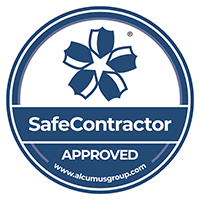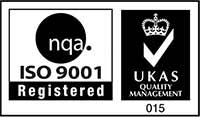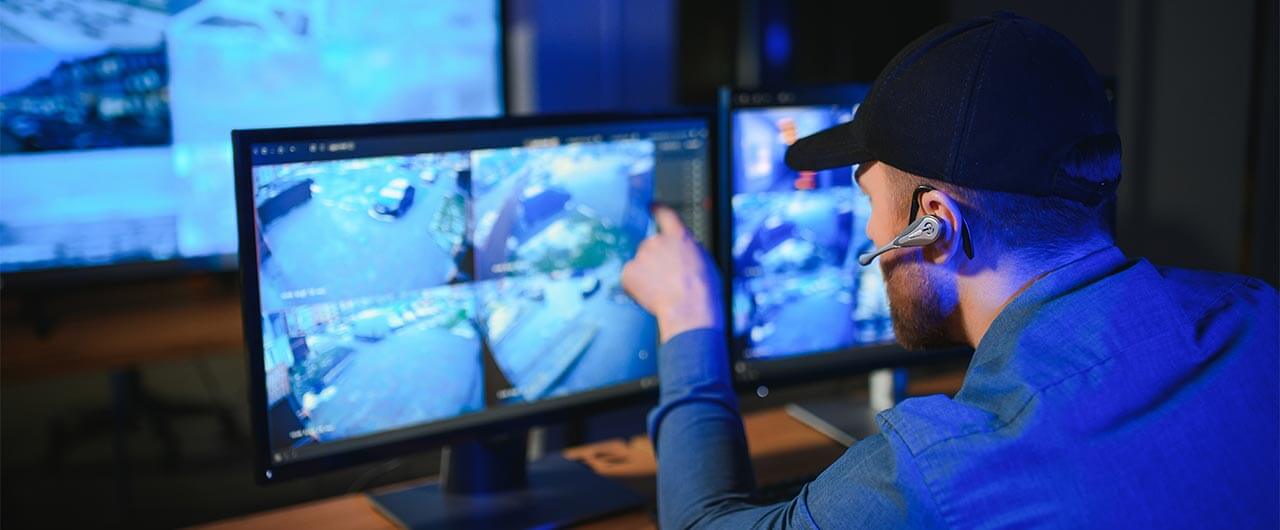To a significant number of our blog readers here at DTS London, it may seem more than obvious why almost any responsible business needs to invest in CCTV monitoring.
After all, if you are a business owner, you will know how much blood, sweat, and tears you may have invested in building up your business from what might have been practically “the ground up”.
During the past few years that have been defined by not only a cost-of-living crisis in the UK, but also a cost-of-doing-business crisis, you will wish to protect the business – including its vital assets and staff – that you have worked so hard to grow and keep afloat.
The data makes a strong case for high-quality business CCTV solutions
Let’s turn to the frankly frightening statistics setting out the scale of the costs that UK businesses face when they become victims of crime.
According to data cited by the Federation of Small Businesses (FSB), “traditional crime” costs small businesses in England and Wales as much as £12.9 billion per year. The FSB cites robbery and criminal damage as examples of such “traditional crime”, which has affected businesses by more than £14,000 over a two-year period.
The FSB states that approximately 50% of small businesses were a victim of at least one crime in the two years leading up to the research that produced this statistic. Furthermore, it says, up to 3.8 million incidents of traditional business crime occur every year.
Even focusing on just one sector – retail – a business crime crisis has clearly been escalating in the UK in recent times. In February 2024, the British Retail Consortium (BRC) issued its latest Crime Survey report.
The survey, covering the period from September 2022 to August 2023, found that there were approximately 475,000 incidents over this period, compared to 316,000 during the previously surveyed bracket of time. More than 1,300 violent incidents were said to take place per day.
Furthermore, according to the BRC’s survey, the overall cost of retail crime – including crime prevention measures – amounted to £3.3 billion for 2022 to 2023. This was nearly double the figure for the year before that.
These are all risks and issues – including real, material damage for businesses across London, Kent, and Surrey – that the right CCTV monitoring solutions, from a reputable specialist company such as DTS London, can help tackle.
What’s the difference between ‘CCTV monitoring’ and just… ‘CCTV’?
Most of us probably feel that we have a fairly accurate idea of what CCTV, standing for closed-circuit television, is – as well as what it isn’t.
The Cambridge Dictionary defines CCTV as “a system that sends television signals to a limited number of screens, and is often used in shops and public places to prevent crime”. The technology is also commonly referred to as “video surveillance”.
Typically, the video systems that most of us know as “CCTV” work as follows: one or multiple video cameras are placed around a given area where the operator of the system wishes to capture recorded footage (for example, for the purposes of enhancing safety and security at their business site).
When the CCTV system is in operation, the footage is transmitted to a display monitor or several monitors. These may be used to watch the CCTV footage in real time (such as when an intruder is walking around the given business premises), or if there is a wish to play back the footage later.
The overall CCTV system, then, encompasses such elements as the aforementioned cameras and monitors, together with the associated wiring, video footage storage (which may be done via the cloud or a digital video recorder), access control, and the general system management.
However, there is a significant difference between a CCTV system simply being in place at your business’s premises, and that CCTV system being actively monitored.
A CCTV monitoring service typically entails a third-party remote monitoring company monitoring the given site’s CCTV footage for certain events, such as someone trespassing on the premises outside of its normal opening hours, or attempting to break into a closed building at the site.
In the event of such an unwanted activity or incident being detected, a quick and robust response can be provided. This may take the form of the site keyholder being alerted, or the police being called. It can also involve warning off the intruder, letting them know via a tannoy announcement that they are being watched. Even this, on its own, might be sufficient to put them off proceeding to carry out any theft or cause any damage to the property.
Is it a legal requirement to have CCTV in the workplace?
It is not legally required for CCTV to be used in a workplace in the UK. An organisation may, however, decide to put in place a CCTV system at its premises, including for such purposes as protecting the general security of the site, enhancing the safety of employees and visitors, and giving the business owner the greatest possible peace of mind.
If you do decide to install CCTV at your commercial premises, you will need to ensure compliance with a range of privacy and data protection legislation, including the Data Protection Act 2018 and the General Data Protection Regulation (GDPR).
UK employers are permitted to use CCTV for legitimate business or security reasons. However, they should carefully consider the ethical implications.
Employees have a reasonable expectation of privacy in such parts of a business property as restrooms and break rooms. You may have reason to carry out covert surveillance of employees without their knowledge. However, it is essential that you only do this in exceptional circumstances, and with caution.
So, what factors make business CCTV monitoring so crucial? Here are a few of them…
As a business owner or a decision-maker for a business in the UK, it will clearly need to be your decision whether you invest in a CCTV monitoring service, as opposed to non-monitored CCTV and/or other safety and security arrangements.
Nonetheless, below, we have outlined some of the reasons why you might decide CCTV monitoring is not merely a “nice to have” for your business, but is instead essential:
- It provides a cost-effective alternative to on-site security guards
If you decide against having a monitored CCTV arrangement at your business premises, you might instead look to hire security personnel who can be present “in person” at your organisation’s site. Such security guards would be able to intervene more directly in the event of an intruder wandering onto the site or other suspicious activity being spotted.
It might seem that this would constitute the “ideal” solution for your premises, rather than a remote monitoring solution.
However, the reality is that no security solution is 100% failsafe. Even if you have security staff on-site at your business, there is always the risk that they could become distracted and miss security breaches. This can be particularly likely to happen if you hire only a small number of security guards to staff a large business site.
By contrast, investing in a remote CCTV monitoring solution can enable you to cover most, or even the entirety, of your business premises at relatively affordable expense, compared to having human security guards constantly in place.
- The emergence of mobile CCTV monitoring
In the age of the “hybrid office”, many of us – even those of us who may have once devoted the bulk of our time to our main business premises – might not always be situated at our organisation’s main brick-and-mortar offices, even during daytime business opening hours.
This has certain implications for the priorities many business owners have when it comes to CCTV monitoring. You might be eager to invest in a solution that enables you to view the CCTV footage at your business premises via your smartphone or tablet computer, wherever you may happen to be at the time.
This integration with your mobile device(s) is something our team at DTS London can give you the benefit of, tailored in line with your most specific requirements. This, in turn, can help give you peace of mind about the security situation at your premises during any given moment.
- Investing in CCTV monitoring is simply a sensible business decision
During a period like the present one when many businesses’ margins might seem to be under greater pressure than they have ever been, you may be tempted to “cut corners” with your expenditure on security solutions.
Unfortunately, however, if your business does become a victim of crime – and the statistics cited above help make clear how extremely likely this is – it is impossible to be sure that your business will be able to recover from the impact.
The UK Government’s most recent Crime Victimisation Survey (CVS) examined the extent of crime against businesses in England and Wales. Premises that had been subject to crime during the previous 12 months were asked about the impact of the given crime on the business and its staff.
It was discovered through this research that while most victims experienced a moderate financial impact (54%), the impact was severe enough for 9% of victims that they were forced to consider closing their premises permanently as a result.
You may be reading this blog post as a business owner or a business decision-maker who thinks a remote CCTV monitoring solution might not be “needed”. The reality, however, is that you cannot guarantee being outside the aforementioned 9% of critically affected businesses, in the event that a crime does occur at your site.
Ultimately, it is likely to make good business sense to invest in CCTV monitoring – not only to deter and catch criminals, but also to protect your organisation’s assets and the safety of your workers. This will help make your business site a more secure and pleasanter place to work, which will help you attract and retain the best-quality staff in the long run.
- Remote monitored CCTV can give you 24/7 peace of mind
It might not seem “essential” to invest in CCTV monitoring for a business site if the given premises are in what may seem a relatively low-risk situation. Examples of this might include if the premises are in a suburb, town, or city that has fairly low crime rates, or if security guards will be based at the site for much of the time.
The reality, however, is that it doesn’t necessarily take very much for a security breach to occur at a business site. A security guard might be momentarily distracted at the time a trespasser arrives, or an intruder may take advantage of a vulnerable spot at the perimeter of the business site, where there might not be CCTV cameras or security staff in place.
Remote CCTV monitoring, though, can potentially cover all parts of your business premises, right through the day and night. As part of this, a team of security professionals can on hand to monitor the footage. Choose a reputable remote monitoring company, and these professionals will have been trained to respond not only swiftly, but also appropriately to whatever security issues might arise. It is difficult to put a price on the peace of mind that such complete, 24/7 coverage of your site can provide. Such an all-encompassing arrangement can help free your mind of worry, so that you can invest more time and effort into running and growing your business.
What are the GDPR rules regarding CCTV in the UK?
The General Data Protection Regulation – also known as the GDPR – began life as European Union (EU) regulation, becoming effective in May 2018. However, it was incorporated into UK law as the UK General Data Protection Regulation at the point of the UK’s departure from the EU (“Brexit”) on 31st January 2020, so it has continued to apply in the UK since then.
The GDPR’s rules do not only cover written details such as names and addresses; any information that can be used to identify someone, such as still imagery and video footage, is also subject to this regulation.
So, you will need to take care in how your business uses CCTV monitoring. The GDPR rules regarding CCTV in the UK include the following:
- In accordance with transparency being a core principle of the GDPR, you must let people know when you’re collecting their personal information. So, you will need to ensure people know your business’s CCTV system is recording them. You can accomplish this by posting signs at your premises, stating that CCTV is in operation.
- You must state why your business is using CCTV. The GDPR contains various lawful bases for the processing of personal data. A private-sector organisation, for instance, may have a genuine and legitimate reason (including commercial benefit) to process personal data without consent, as long as it is not outweighed by negative effects to the rights and freedoms of the individual(s) being monitored.
- You need to control who has access to your business’s CCTV. This is line with the requirement set out by the GDPR, that personal information should only be accessible to those who require such access for the purposes of their job. Generally, then, it will be security personnel and management who should have access to the CCTV, although other staff may require access for processing.
- You are required to delete CCTV footage when it is no longer required. The GDPR sets out that information can only be stored for as long as necessary for the purpose for which the data was collected. Prior to processing, your business will need to outline this timeframe. “As long as necessary” is not, of course, a specific timeframe. However, in practice, it is unlikely that you will need to retain your business’s CCTV footage for longer than a week or two.
To request a free CCTV installation quote from our specialists at DTS London, please call 0208 090 7485 today. You can also use our online contact form to submit an enquiry in relation to our CCTV monitoring solutions; when you do, we will call you back as soon as possible.






